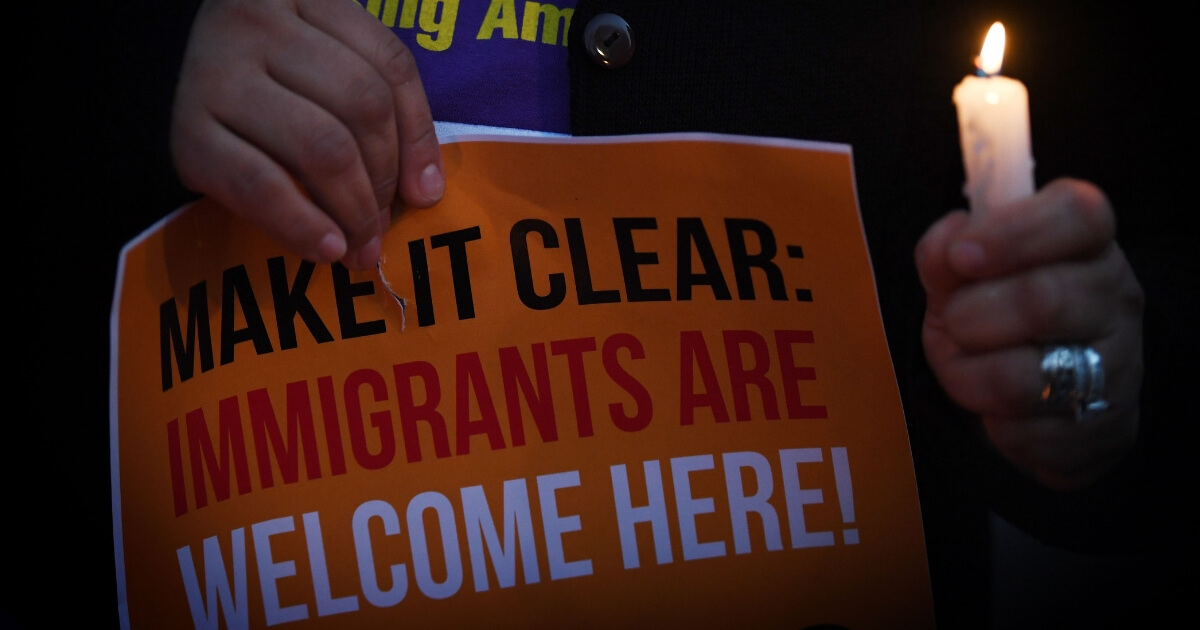
Federal Judge Rules Against Trump In Sanctuary Cities Case
As part of the broader agenda to crack down on illegal immigration, President Donald Trump and his administration had set their sights on the various liberal-dominated states and municipalities that instituted “sanctuary city” policies that protected illegal immigrants from being turned over to federal immigration enforcement officials.
While the ideal of providing a limited safe haven for “undocumented” immigrants who are otherwise law-abiding residents simply trying to work and raise a family without fear of imminent deportation has its supporters, in practice the “sanctuary” policies inevitably end up shielding known and suspected criminal illegal immigrants from rightfully being deported. This makes communities far less safe as those criminals are typically released from police custody back onto the streets.
Trump and his administration attempted to address sanctuary city policies in 2017 with a new Department of Justice policy — announced in July 2017 — that threatened to withhold certain federal grant funds from locales with sanctuary policies unless those locales agreed to cooperate with federal officials and hand over — or at least allow access to — criminal illegal immigrants that by law should be deported back to their home countries.
Of course, liberals across the country challenged the new policy in various courts, and The Hill just reported that a federal judge in New York has issued a ruling that declares the policy to withhold federal grant funds from sanctuary cities to be illegal and unconstitutional.
Judge Edgardo Ramos, appointed to the U.S. District Court for the Southern District of New York by former President Barack Obama in 2011, ruled that the federal government “did not have lawful authority” to compel states and municipalities to either report to federal agents when detained illegal immigrants were about to be released, nor could they be compelled to allow federal agents access to question detained illegal immigrants about their legal status, as conditions upon which federal grant funds could be withheld.
When then-Attorney General Jeff Sessions announced the new policy in 2017, he had laid out three specific conditions by which state and local authorities were expected to abide if they wished to remain eligible for certain federal grant funds.
Those conditions included alerting federal authorities prior to the release of detained illegal immigrants from custody, allowing federal agents access to jails to question detained illegal immigrants and not restricting state and local officials from cooperating with federal authorities in regard to the enforcement of immigration laws.
As can be seen, the judge struck down two of those three conditions as being unconstitutional with his ruling which blocked the Trump administration from enforcing the policy. It is noteworthy that the ruling applies only to New York state and New York City, as well as six other states that signed on to this particular legal challenge: Connecticut, Massachusetts, New Jersey, Rhode Island, Virginia and Washington.
The challengers had requested that Judge Ramos extend his injunction over those seven states to be applied nationwide — something we have seen far too many low-level federal judges of the liberal persuasion doing far too often these days to stymie Trump’s agenda — but Ramos resisted the demand that he do so, as he said the challengers had failed to prove to him that such a move was necessary to provide them with relief.
Furthermore, the judge pointed to other rulings from other judges who’d heard legal challenges in other venues to the same policy, and noted that their rulings had been limited in regional scope as well.
In September 2017, a federal judge in the Northern District of Illinois had issued a nationwide injunction against the sanctuary city/federal grant funds policy, and while the 7th Circuit Court of Appeals had upheld that judge’s ruling against the administration, it nevertheless placed the nationwide scope of the injunction on hold pending a review by a full panel of the court’s judges.
Similarly, a judge in the Eastern District of Pennsylvania had issued an injunction which blocked the administration from enforcing the new requirements to continue receiving certain federal grant funds, but applied the injunction solely to the city of Philadelphia. That ruling has since been appealed to the 3rd Circuit Court of Appeals by the administration.
Likewise, a federal judge in California ruled against the administration on this issue in October of this year, but only applied his ruling to the city and county of San Francisco. If the administration appeals that ruling, it will go to the liberal-dominated 9th Circuit Court of Appeals, which has become notorious for upholding rulings against Trump.
The Democratic New York Attorney General Barbara Underwood cheered the ruling from Judge Ramos, and said in a statement, “As we argued, local law enforcement has the right to decide how to meet their local public safety needs — and the Trump administration simply does not have the right to require state and local police to act as federal immigration agents. The Trump administration’s attempt to withhold these vital funds was nothing more than a political attack at the expense of our public safety.”
The ruling from Judge Ramos will almost certainly be appealed by the Trump administration like the other rulings were. The ultimate goal of the administration will be to get at least one of these cases appealed all the way up to the Supreme Court so a final definitive ruling can be issued on the matter.
When that might actually occur is anyone’s guess, and at least for now, any plans by the administration to withhold federal grant funds from states and municipalities that have implemented sanctuary city policies will have to be placed on hold for the time being.
Truth and Accuracy
We are committed to truth and accuracy in all of our journalism. Read our editorial standards.
Advertise with The Western Journal and reach millions of highly engaged readers, while supporting our work. Advertise Today.












